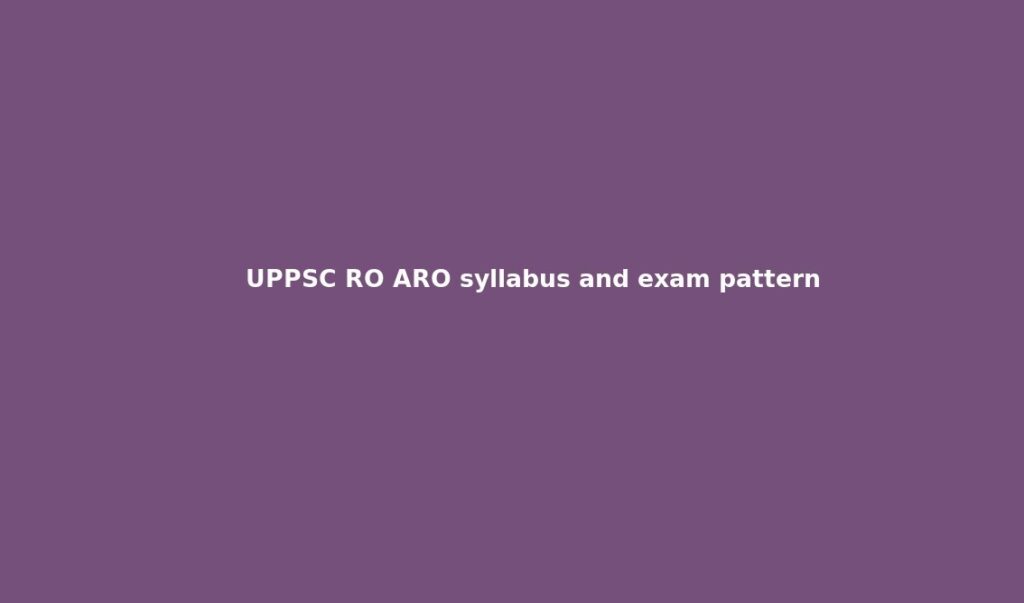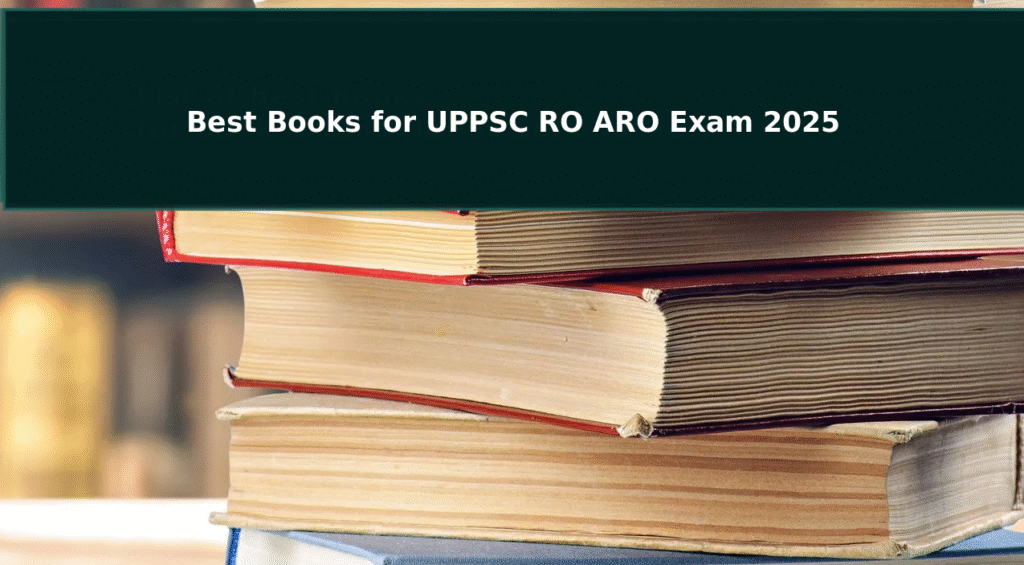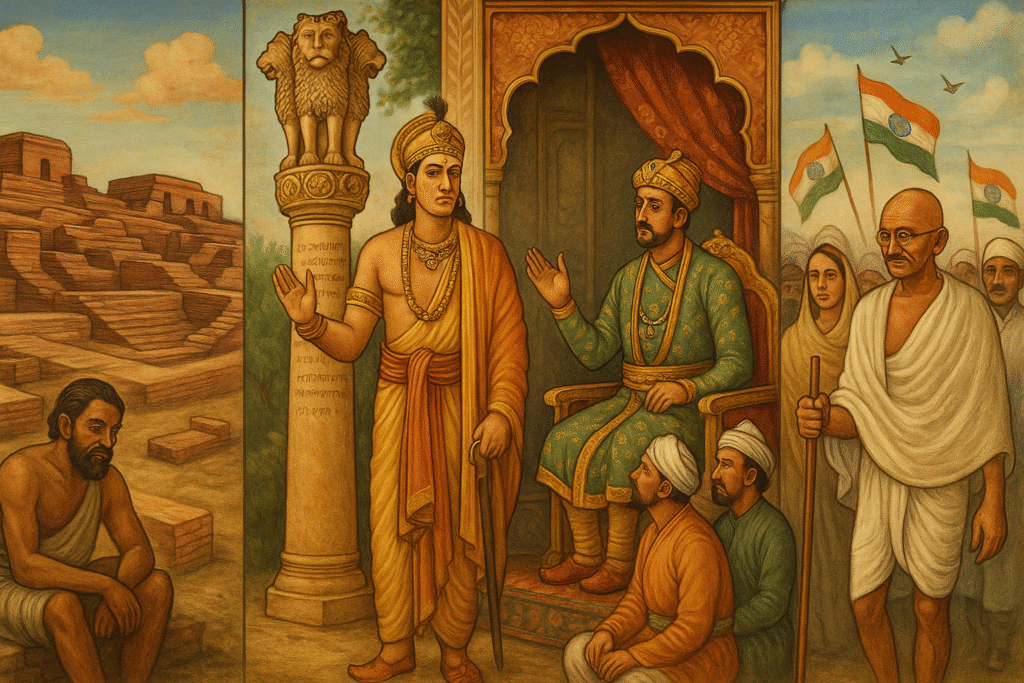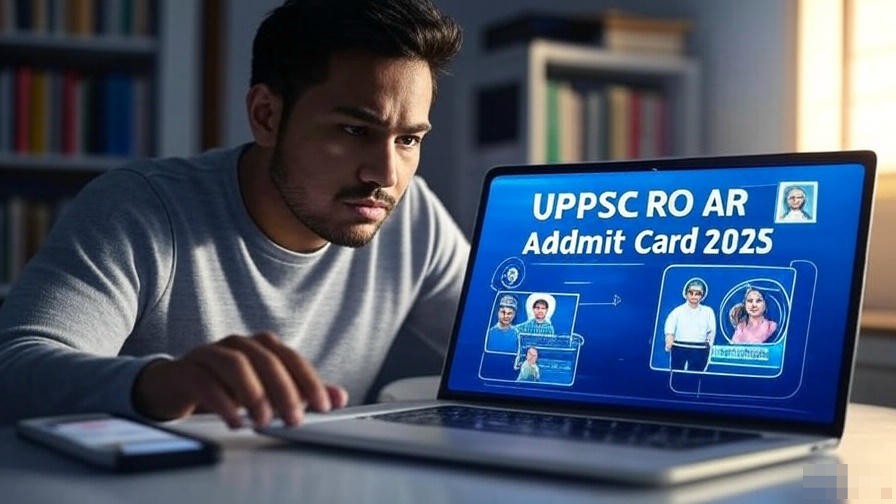If you are preparing for UPPSC ARO/RO 2025, understanding the Fundamental Rights guaranteed by the Indian Constitution is crucial. These rights form a vital part of the syllabus under the Indian Polity section and frequently appear in the exam. This article covers important 60 questions and answers on Fundamental Rights that will help you score better and clear your concepts clearly.
What are Fundamental Rights?
Fundamental Rights are basic rights provided by the Indian Constitution to protect individual liberty and equality. These rights are enforceable by the courts, especially the Supreme Court and High Courts.
Top UPPSC ARO/RO 2025 Questions on Fundamental Rights
1. How many Fundamental Rights were originally included in the Indian Constitution?
- A) 6
- B) 7
- C) 8
- D) 9
Answer: 7
2. If Fundamental Rights are violated, which authority can be approached directly?
- A) Parliament
- B) Supreme Court
- C) Rajya Sabha
- D) Lok Sabha
Answer: Supreme Court
3. Under which Article is the ‘Right to Personal Liberty’ guaranteed?
- A) Article 19
- B) Article 21
- C) Article 22
- D) All of the above
Answer: All of the above (Articles 19, 21, 22 together cover personal liberty)
4. Who is responsible for interpreting and protecting Fundamental Rights?
- A) Parliament
- B) President
- C) Judiciary
- D) Prime Minister
Answer: Judiciary
5. Which Article is known as the ‘Heart and Soul’ of the Indian Constitution?
- A) Article 19
- B) Article 21
- C) Article 32
- D) Article 14
Answer: Article 32
6. Which Fundamental Right was abolished by the 44th Amendment Act, 1978?
- A) Right to Property
- B) Right to Religious Freedom
- C) Right Against Exploitation
- D) Cultural and Educational Rights
Answer: Right to Property
7. According to Dr. B.R. Ambedkar, which is the most important Fundamental Right?
- A) Right to Equality
- B) Right to Constitutional Remedies
- C) Right Against Exploitation
- D) Right to Freedom
Answer: Right to Constitutional Remedies
8. What is the main objective of Fundamental Rights?
- A) To empower the State
- B) To protect citizens’ rights
- C) To ensure economic development
- D) To collect taxes
Answer: To protect citizens’ rights
9. Who has the power to extend and apply Fundamental Rights?
- A) State Government
- B) Parliament
- C) Supreme Court and High Courts
- D) President
Answer: Supreme Court and High Courts
10. Which Fundamental Right prohibits discrimination based on caste, religion, or gender?
- A) Right to Freedom
- B) Right to Equality
- C) Cultural Rights
- D) Right to Education
Answer: Right to Equality
11. Under which Article can a law infringing Fundamental Rights be declared unconstitutional?
- A) Article 15
- B) Article 12
- C) Article 13
- D) Article 25
Answer: Article 13
12. Which Article protects the cultural and educational rights of religious and linguistic minorities?
- A) Article 29 and 30
- B) Article 25
- C) Article 32
- D) Article 15
Answer: Article 29 and 30
13. The Right to Education (RTE) in India applies to children of which age group?
- A) 3 to 10 years
- B) 6 to 14 years
- C) 7 to 15 years
- D) 5 to 12 years
Answer: 6 to 14 years
14. Which Fundamental Right prohibits child labor in hazardous industries and factories?
- A) Article 24
- B) Article 23
- C) Article 21
- D) Article 19
Answer: Article 24
15. Which Fundamental Right guarantees equality of opportunity in public employment?
- A) Right to Equality
- B) Right to Freedom
- C) Article 16
- D) Right Against Exploitation
Answer: Article 16
16. What special rights are given to the judiciary to enforce Fundamental Rights?
- A) Parliamentary authority
- B) Judicial Review
- C) Presidential orders
- D) Prime Minister’s directives
Answer: Judicial Review
17. Which of the following is NOT a Fundamental Right?
- A) Right Against Exploitation
- B) Right to Property
- C) Right to Religious Freedom
- D) Cultural and Educational Rights
Answer: Right to Property
18. Under which Article is the state allowed to make special provisions for women and children?
- A) Article 14
- B) Article 15(3)
- C) Article 19
- D) Article 23
Answer: Article 15(3)
19. What does the ‘Right to Prevention of Exploitation’ prohibit?
- A) Bonded labor
- B) Child labor below 14 years in factories
- C) Human trafficking
- D) All of the above
Answer: All of the above
20. Which Article is considered the ‘Guardian of Fundamental Rights’?
- A) Article 14
- B) Article 32
- C) Article 21
- D) Article 19
Answer: Article 32
21. How many Fundamental Rights were originally in the Indian Constitution?
- A) 6
- B) 7
- C) 8
- D) 9
Answer: 7
22. Which institution can be directly approached if Fundamental Rights are violated?
- A) Parliament
- B) Supreme Court
- C) Rajya Sabha
- D) Lok Sabha
Answer: Supreme Court
23. Under which Article is ‘Right to Life and Personal Liberty’ guaranteed?
- A) Article 19
- B) Article 21
- C) Article 22
- D) All of the above
Answer: All of the above
24. Who has the power to interpret and protect Fundamental Rights?
- A) Parliament
- B) President
- C) Judiciary
- D) Prime Minister
Answer: Judiciary
25. Which Fundamental Right was abolished by the 44th Amendment Act, 1978?
- A) Right to Property
- B) Right to Religious Freedom
- C) Right Against Exploitation
- D) Cultural and Educational Rights
Answer: Right to Property
26. Dr. B.R. Ambedkar considered which Fundamental Right the most important?
- A) Right to Equality
- B) Right to Constitutional Remedies
- C) Right Against Exploitation
- D) Right to Freedom
Answer: Right to Constitutional Remedies
27. What is the primary aim of Fundamental Rights according to the Constitution?
- A) Empower the State
- B) Protect Citizens’ Rights
- C) Ensure Economic Growth
- D) Tax Collection
Answer: Protect Citizens’ Rights
28. Which Fundamental Right prohibits discrimination based on caste, religion, gender, etc.?
- A) Right to Freedom
- B) Right to Equality
- C) Cultural Rights
- D) Right to Education
Answer: Right to Equality
29. Under which Article can any law violating Fundamental Rights be invalidated?
- A) Article 12
- B) Article 13
- C) Article 15
- D) Article 25
Answer: Article 13
30. Which Fundamental Right allows minorities to preserve their culture and language?
- A) Article 15
- B) Article 29 and 30
- C) Article 25
- D) Article 32
Answer: Article 29 and 30
31. Under which Article does the state have the power to make special provisions for women and children?
- A) Article 14
- B) Article 15(3)
- C) Article 19
- D) Article 23
Answer: Article 15(3)
32. Which Fundamental Right guarantees freedom of religion?
- A) Right to Worship
- B) Right to Propagate Religion
- C) Right to Freedom of Religion
- D) All of the above
Answer: All of the above
33. Which Article gives cultural and educational rights to religious and linguistic minorities?
- A) Article 25
- B) Article 29 and 30
- C) Article 32
- D) Article 15
Answer: Article 29 and 30
34. The ‘Right to Prevention of Exploitation’ protects children under what age from factory labor?
- A) Below 14 years
- B) Below 15 years
- C) Below 18 years
- D) Below 12 years
Answer: Below 14 years
35. The Right to Education (RTE) in India applies to children of which age group?
- A) 3 to 10 years
- B) 6 to 14 years
- C) 7 to 15 years
- D) 5 to 12 years
Answer: 6 to 14 years
36. Under Article 24, where is child labor prohibited?
- A) Dangerous industries and factories
- B) Government offices
- C) Agricultural work
- D) Domestic work
Answer: Dangerous industries and factories
37. Article 16 guarantees which right?
- A) Right to Equality
- B) Equality of Opportunity in Public Employment
- C) Right Against Exploitation
- D) Freedom of Religion
Answer: Equality of Opportunity in Public Employment
38. What special power is given to enforce Fundamental Rights?
- A) Parliamentary power
- B) Judicial Review
- C) Presidential Directive
- D) Prime Minister’s Decision
Answer: Judicial Review
39. Which right is not included in Fundamental Rights?
- A) Right Against Exploitation
- B) Right to Property
- C) Freedom of Religion
- D) Cultural and Educational Rights
Answer: Right to Property
40. Which Article is known as the ‘Heart and Soul of the Indian Constitution’?
- A) Article 19
- B) Article 21
- C) Article 32
- D) Article 14
Answer: Article 32
41. Who has the power to interpret and enforce Fundamental Rights?
- A) Parliament
- B) President
- C) Judiciary
- D) Prime Minister
Answer: Judiciary
42. Which Article guarantees protection against arbitrary arrest and detention?
- A) Article 19
- B) Article 20
- C) Article 21
- D) Article 22
Answer: Article 21
43. Which Fundamental Right prohibits trafficking and forced labor?
- A) Right to Equality
- B) Right Against Exploitation
- C) Right to Freedom
- D) Cultural and Educational Rights
Answer: Right Against Exploitation
44. The right to freedom of speech and expression is guaranteed under which Article?
- A) Article 19(1)(a)
- B) Article 20
- C) Article 21
- D) Article 22
Answer: Article 19(1)(a)
45. Which Article allows citizens to move the Supreme Court for enforcement of Fundamental Rights?
- A) Article 21
- B) Article 32
- C) Article 19
- D) Article 14
Answer: Article 32
46. Which of the following rights are called “Negative Rights”?
- A) Right to Equality
- B) Right to Freedom
- C) Right Against Exploitation
- D) All of the above
Answer: Right to Freedom
47. Under which Article are minorities given the right to establish and administer educational institutions?
- A) Article 29
- B) Article 30
- C) Article 31
- D) Article 32
Answer: Article 30
48. Which Article prohibits discrimination on grounds of religion, race, caste, sex, or place of birth?
- A) Article 14
- B) Article 15
- C) Article 16
- D) Article 17
Answer: Article 15
49. The abolition of “Untouchability” is mandated by which Article?
- A) Article 14
- B) Article 15
- C) Article 16
- D) Article 17
Answer: Article 17
50. Which Fundamental Right was initially suspended during the Emergency period in India (1975-77)?
- A) Right to Property
- B) Right to Freedom of Speech
- C) Right to Equality
- D) Right Against Exploitation
Answer: Right to Freedom of Speech
51. Which Article provides protection in respect of conviction for offenses?
- A) Article 19
- B) Article 20
- C) Article 21
- D) Article 22
Answer: Article 20
52. The right to move freely throughout the territory of India is guaranteed under which Article?
- A) Article 14
- B) Article 19(1)(d)
- C) Article 21
- D) Article 22
Answer: Article 19(1)(d)
53. Which Article guarantees protection in respect of preventive detention?
- A) Article 21
- B) Article 22
- C) Article 19
- D) Article 17
Answer: Article 22
54. Which Fundamental Right was deleted by the 44th Amendment Act, 1978?
- A) Right to Property
- B) Right to Education
- C) Right to Freedom
- D) Right to Equality
Answer: Right to Property
55. The protection of life and personal liberty is guaranteed under which Article?
- A) Article 19
- B) Article 20
- C) Article 21
- D) Article 22
Answer: Article 21
56. Which Article prohibits employment discrimination on the basis of religion, race, caste, sex or place of birth?
- A) Article 14
- B) Article 15
- C) Article 16
- D) Article 17
Answer: Article 16
57. The right to freedom of assembly peacefully and without arms is guaranteed by which Article?
- A) Article 19(1)(a)
- B) Article 19(1)(b)
- C) Article 21
- D) Article 22
Answer: Article 19(1)(b)
58. Which Fundamental Right ensures protection against untouchability?
- A) Article 15
- B) Article 16
- C) Article 17
- D) Article 18
Answer: Article 17
59. Which of these rights is NOT a Fundamental Right?
- A) Right to Equality
- B) Right to Education
- C) Right to Property
- D) Right to Freedom
Answer: Right to Property (Note: Right to Property was removed from Fundamental Rights and made a constitutional legal right)
60. Which Fundamental Right guarantees cultural and educational rights to minorities?
- A) Articles 29 and 30
- B) Article 14
- C) Article 21
- D) Article 22
Answer: Articles 29 and 30
Other Important Questions for UPPSC ARO/RO
- Which Article allows the state to make special provisions for women and children?
Answer: Article 15(3) - What rights are guaranteed under Religious Freedom?
Answer: Freedom of worship, propagation, and practice (Article 25) - Minimum age prohibition for child labor in factories?
Answer: Below 14 years (Article 24) - Which Article prohibits child labor in hazardous industries?
Answer: Article 24 - Which Article ensures equality of opportunity in public employment?
Answer: Article 16
Conclusion for UPPSC ARO/RO 2025 Aspirants
Mastering Indian Constitution Fundamental Rights is key to scoring well in the UPPSC ARO/RO exam. Make sure you memorize the Articles, understand their significance, and practice multiple-choice questions like these regularly.
- 35 Indian History MCQs with Answers UPPSC ARO Exam 2025
- Best Books for UPPSC RO ARO Exam 2025 along with Hindi
- UPPSC RO ARO Syllabus 2025 Exam Pattern
Pro Tip: Focus on Article numbers, landmark amendments (like the 44th Amendment), and important rights highlighted by Dr. Ambedkar.




